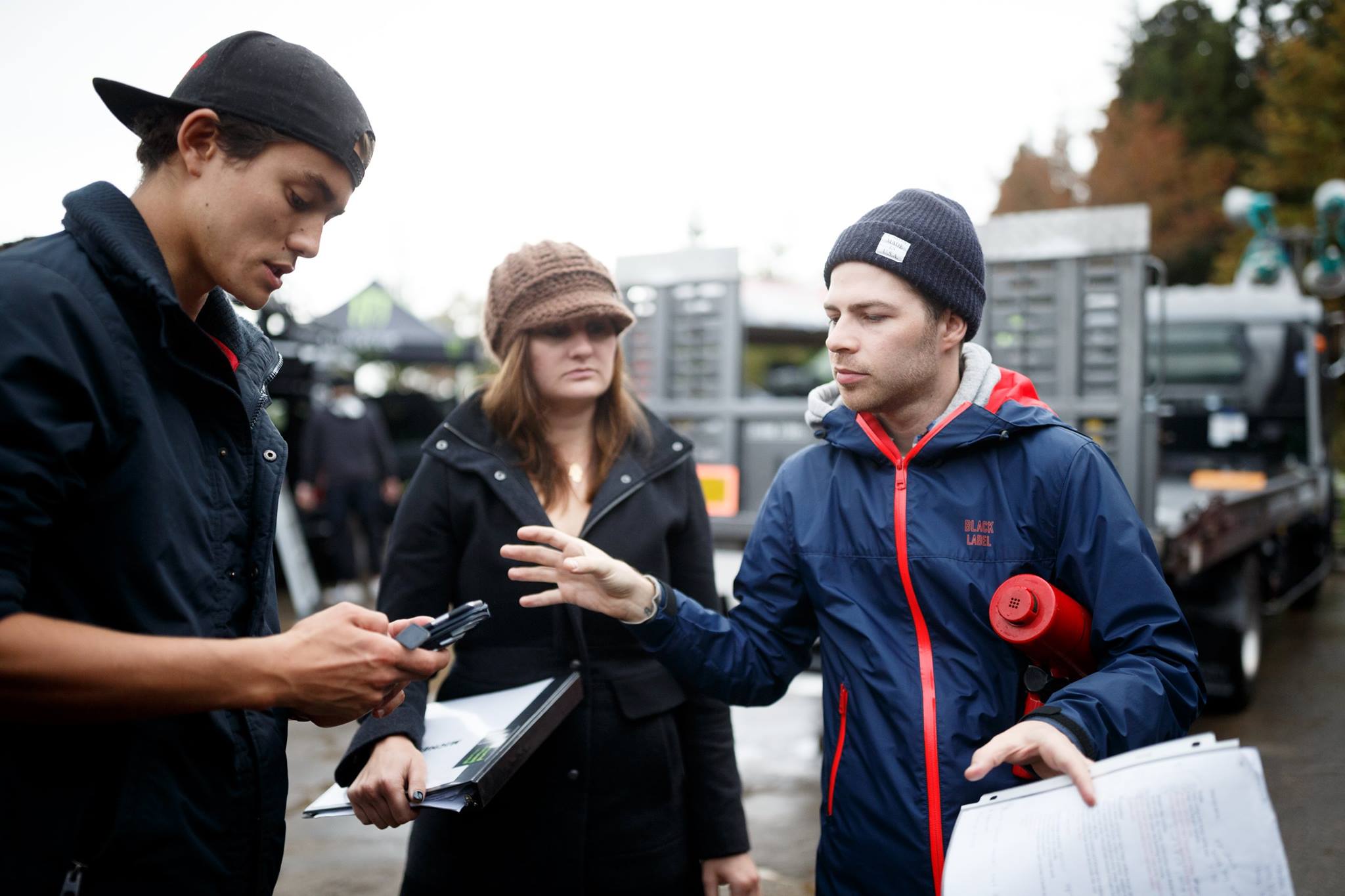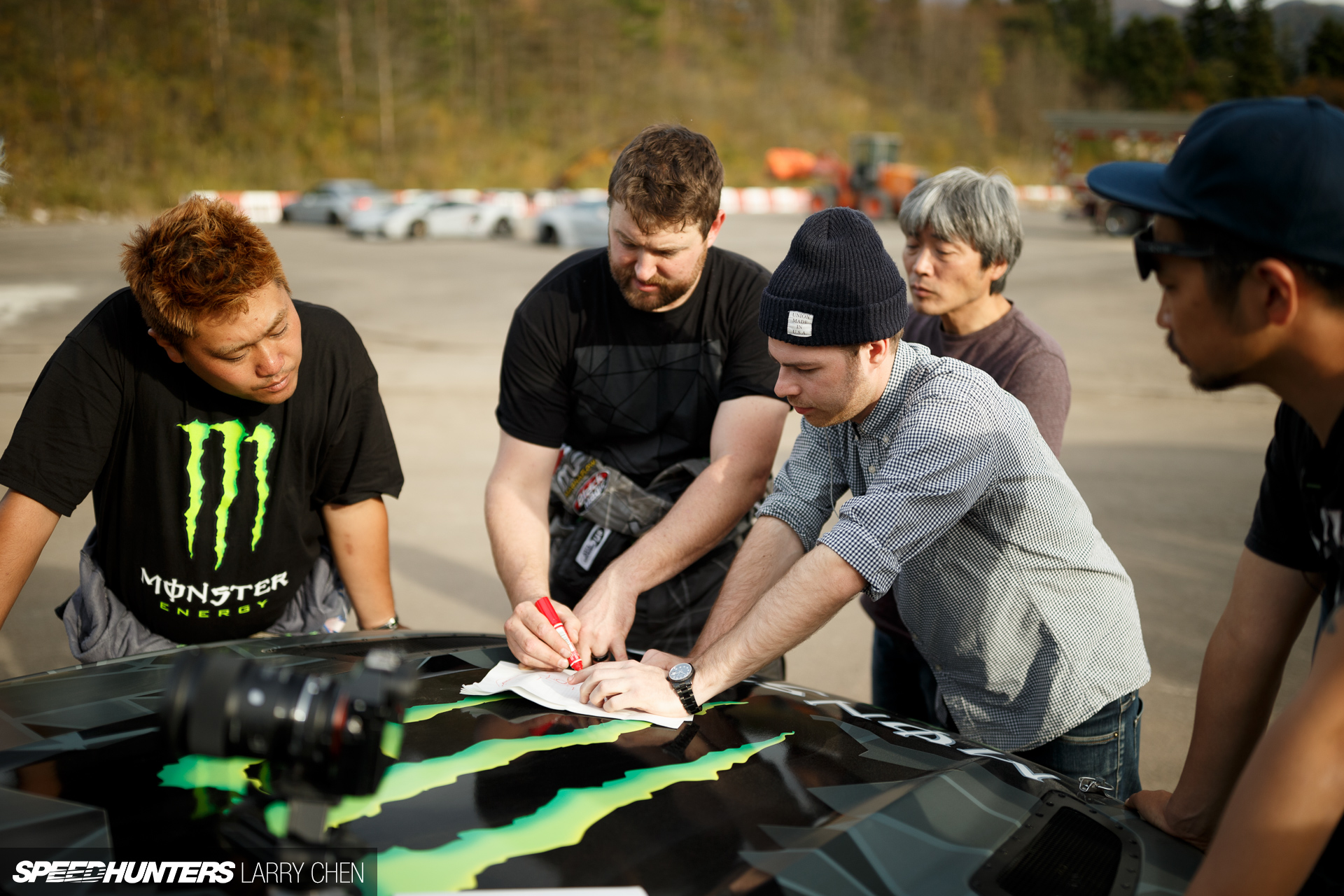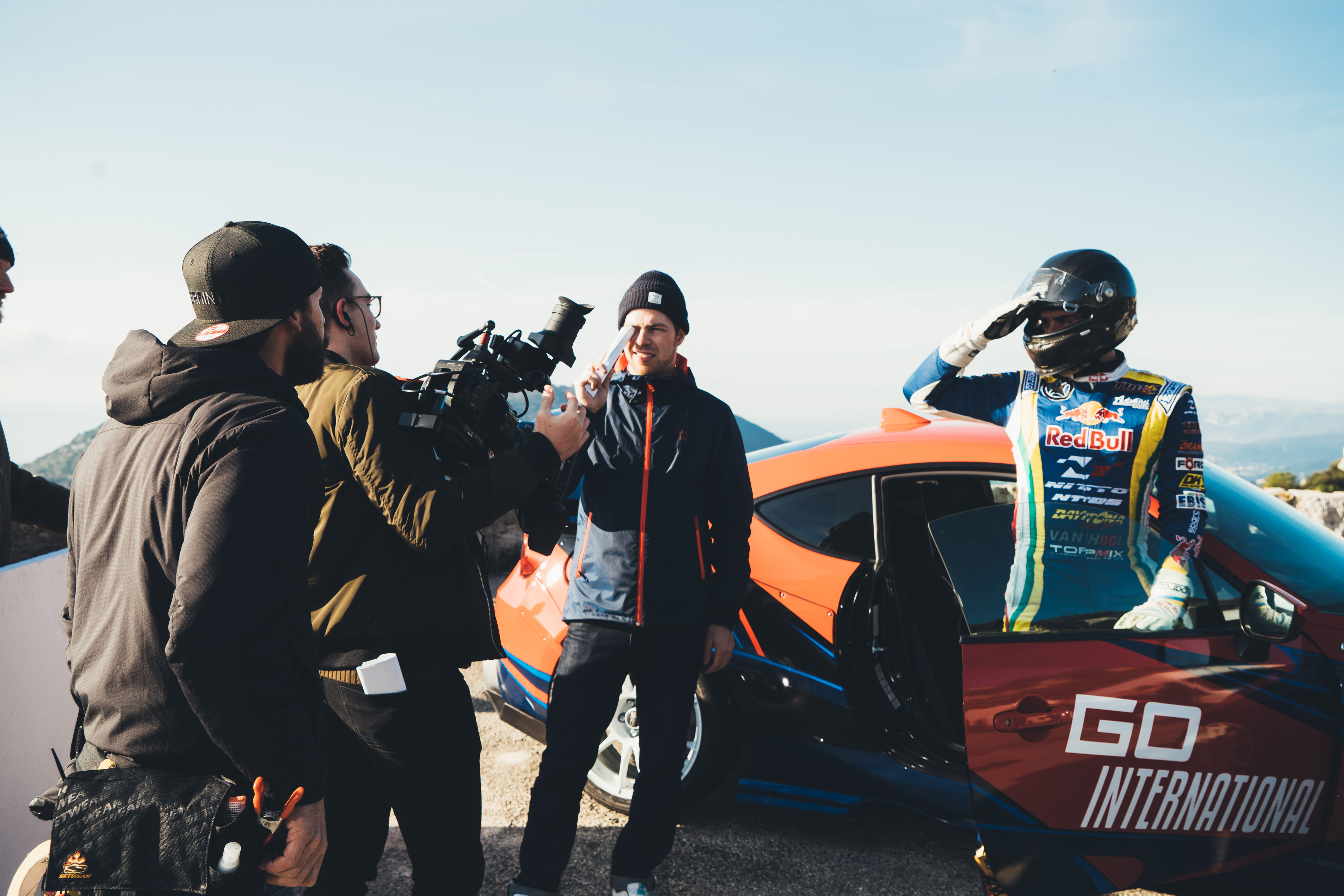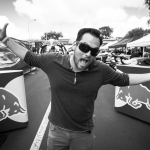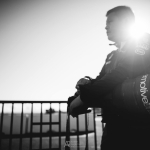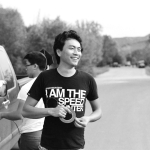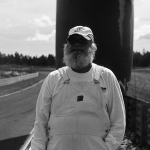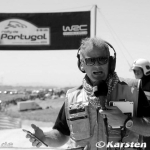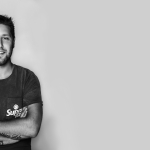Luke Huxham, a person with very sharp and recognisable style in automotive videography world. I was interested in talking to him for a while and recently I had the opportunity to do so. We discussed Japan, media, his films and Morohoshi-san
– Where are you from?
– I’m a New Zealand passport holder living in Japan, but spent half my life raised between New Zealand and Australia, I bounce between being a Kiwi or Aussie depending on the crowd I’m with and current world events involving both my home countries haha.
– What are you working on at the moment? What keeps you busy?
– Right now? Well just finished up invoicing some clients from projects that started in 2015 and setting up meetings for next week. Taking up most my time currently would be a big proposal for a multilayered media campaign for a series of Toyota Rally projects along with putting together some decks for potentials projects with Audi and VW in the coming months. Putting together proposals and decks to win projects takes up most of my time nowadays, most people don’t realise that it takes 2 months of meetings and competing with other agencies or directors before you even get on set, followed by another month or two after shooting to wrap up a project. Half way through 2015 I made the decision to stop editing films and being a “one man band” so to speak and focus mainly just on directing films and developing projects.
– I, myself, work in PR/Online Marketing, so I’m very interesting in how it works? Do you pitch ideas yourself, for example to Toyota, or is there an open contest?
– It’s very dependant on the project and where it comes from. Bigger commercial projects almost always go through an agency or production agency, from there they will outsource it to directors that they already have a relationship with or find someone that fits this the project. Some projects will come to you because the client or agency specifically likes your previous work and they have already got the contract so you get the job directly through them and then in other cases a client gives the project out to all agencies or directors, then you must pitch for it and compete on budget and ideas. It’s a very hard game to play and if you don’t get the project no one pays you for the time you spent building a pitch and sometimes the client will even take parts of your idea but find someone cheaper to try and replicate them. It’s a hard landscape to work in sometimes so the best method to have that edge over the next person is by trying to make every project you’re involved in look as best as possible.
– How do you present yourself to potential clients? Send them a DVD with showreel?
– When I started out filming I would send out emails almost weekly to potential clients or people I thought could need video services but nowadays the work seems to find me. Either someone has seen my previous works and contacts me directly or a person recommends me for a job. Maybe I should do a showreel but I find it near impossible to cut up my “best of” work and put it all into one short film, I really don’t like most of my work so I find putting together a showreel quite daunting if not impossible. Never the less no matter how the projects find you, you always have to stay hungry.
– I would say that Text Animation in videos is your distinctive feature, how do you feel about it yourself?
– I mean, maybe, to the first time viewer of my works. At first the GFX animation stands out, but I feel and also a reason why a lot of clients come to me is because of the way I try to build their films. Every scene or shot has a reason for being there and it’s all filmed with a sense of cinematic style or as close to that style as possible depending on the circumstances at the time. I think if you were to sit down and watch a few of my films you might better see this. One easy example of this is in my recent Monster Energy film, you will notice in each scene I have tried to hide all the cameras. The moment the viewer sees all these GoPro’s suctioned onto the side of cars or cameras mounted inside the car the cinematic sense is all but lost and now it’s simply just another “action sports” film. This sounds simple enough but hiding cameras is quite a painful process, usually it means each stunt has to be done twice or more depending on how many cars you have. Then you have to redo it all again when you’re filming them from the outside because you don’t want to see all these cameras attached to the sides of the cars. So personally for me, I think my cinematic approach and how I build a story in each project could be my most distinctive feature, I’m also quite good at getting that viral reach.
#FunFact : My first initial edit of the Monster Energy film that’s sitting on my hard drive is completely different to the final finished film. Sometimes a client has a certain editing style they like to adhere to, your own personal style might not suit every project so its part of your job as a director to adapt or find an editor that can recreate what the client needs.
– How would you describe yourself?
– I’m a very goal oriented person, be it something career wise or materialistic. Very friendly but also enjoy being by myself, always willing help out people as much as I can within reason. I truly believe that areas of my success have come from working with others and giving them a chance when I have the means too. I can be very blunt and honest, to the point of looking like a prick sometimes. I think this comes from the mentality of having to do things myself a lot and not wanting to waste my own or anyone else’s time. If I bring someone into a project I expect them to devote a lot of energy into it. There are just so many talented people out there that it’s hard for me not to take it personal if someone doesn’t pour 110% of their effort into the job or an opportunity when there are so many others out their with great attitude wanting a chance. I am horrible at remembering a lot of stuff like birthdays or events but I will never forget my work project dates and that guy who screwed up or did a bad job, sort of have a memory like an elephant in that respect.
I hated school like most kids growing up, so when I got to high school I sort of decided just to stop going and went off and learnt the skills needed to work in graphic / website design. I think in a normal school week I would only attend 6-7 hours and that was just for computer studies or art class. I justified not telling my parents that I was no longer attending school if I actually learnt something I could use in the future. So I guess from a very young age I knew what I wanted to spend my time on and what I didn’t want to waste my time with. I think if everyone was just a little bit more honest about what they wanted to do or about other peoples ideas we might all save a lot of time and effort and grow more together.
– What inspires you?
– That’s quite a bit to chew off so I will try and tackle it in a couple parts, bare with me…
From a strictly commercial project perspective, if you’re lucky to have a cool subject or story to be working with then naturally this draws in a lot of its own inspiration and if the subject isn’t very compelling than a nice budget can serve as good inspiration. A nice budget allows a project that might not be so great to grow into a much cooler project. Maybe there is some people you want to work with that can help the project visually, sure no problem fly them over you have the budget. Maybe you want to use some new lenses or the latest camera, you have the budget to do this. Big budgets can remove a lot of boundaries you might be faced with on lower budget projects, you have a lot more freedom to grow an idea or build it out in a way that simply might not be possible without the right funding, for example. Helicopters, russian arm camera cars, a big crew to help with creating dynamic lighting etc, all of this might not be needed but it does serve as inspiration in itself. On smaller projects you usually have a lot more freedom but then not a lot of budget so its very important to be super creative with what you have and have a client that’s open to trying something different. When I make the decision to take on a project, what’s best for the client and their business takes president over everything else. I truly believe in helping a client grow and pointing them in a direction that will have the biggest benefit in what they’re trying to achieve even if it means butting heads with people. This can be really inspiring not only to myself but also to the client, they might feel that connection with customers or their audience again.
From a more personal perspective I think early on when it all starts you have to be doing it for love of it all, if you don’t truly love the craft of making films you won’t last that long and this would be the same for photography. If you have any hopes of turning it into a career you have to be able to give it a good 5-6 years before you earn a single dime. If you don’t want to do this as career you can enjoy it as a hobby for the rest of your life, but when it turns into your job things change, there are certain projects you like and then others you might not like, but they will help you further your career or open up doors to something new. So it’s really a balancing act when you take a passion and try to turn it into a career. When you can get to the stage in your career that you’re able to say no to doing certain jobs you might not enjoy, then the balance can really be flipped in favour of passion again. When this balance flips back to passion like when you first started exploring film you will find a lot more inspiration in everything you do. Sometimes though it can be hard to stay inspired and you can forget your roots, this is why I enjoy watching a lot of movies at home or at the cinema. You can find so many new angles or different ways of shooting things, sometimes I even write down notes to remember a certain way something was filmed that I want to try. It’s cool to try new techniques or build upon them in your own way. Also studying a film’s colour grade and how that particular grade gives texture and depth to the footage – I love colour grading.
– What movies do you enjoy?
– First and foremost everything from Quentin Tarantino, he is amazing and I love the way he builds each shot. I really enjoyed Black Mass from Scott Cooper last year, also TV shows like True Detective and House of Cards, the character progression and the sense of emotions these shows manage to build are something I have never seen before on TV. Fight club, the original Star Wars films (the latest one sucked). Lost in Translation with Bill Murray, hits home pretty hard because it’s really shows what living and working in Japan can be like for a foreigner. I enjoy pretty much everything though, I can always fine some aspect of most films to take pleasure in or to learn from.
– Some time ago you mentioned on Speedhunters that you’re keen on learning photography as well, is it still something you do?
– Yeah I enjoy photography and well it’s a lot like shooting films just with different camera settings, each have their own technical sides you have to master, but they share so much in common in regards to framing and lighting. I think it’s impossible not to learn how to take photos if you have spent a good amount of time behind DSLR’s making films. Nowadays most my “photography” if you even want to call it that is from my iPhone, I enjoy taking happy snaps and then printing them out on photo paper.
– What for you is the most enjoyable part of shooting automotive videos?
– I would say the part I enjoy the most is starting off with a strong idea for say a car film or commercial and then developing that into a whole campaign. Not just making a film and throwing it out there to sort of stand on its own legs, but to help develop supporting contents that all follow the same theme as the film and feed off each other. Combining film, photography, web and print all into one cohesive movement and even doing an event off the back of the project as well. I’m not just a director, but also a creative strategist, so when I put together a film I think about how it will get consumed by the viewer, or how can we help push this film out there to more people be it via supporting content or alternative traffic streams. I really enjoy the process of creating all these activations that help blow the project up. I did search engine optimisations in my early years in IT so this led me to understand Internet traffic a little more. It’s really nice to work with lots of different creatives and get everyone flowing in one direction, having that nice idea with a consistent theme captured in all these different mediums that really push that one connected message. I can be a little OCD sometimes, so making sure everything is consistent makes me happy.
– So, for creative strategist, you’re again a “one-man band?” You do SEO, Social Media, PR, Marketing, Branding, design all yourself?
– I wouldn’t say a one man band because I’m not the one to manually do all of these things, but when it comes to putting together activations that will spread across social, web and or print then yes, I’m usually the one to initiate this approach. I feel as a creator and also as a customer that a lot of brands and automotive car makers in general sometimes forget what their customers want or what’s actually important to focus on. This is a big problem in Japan with PR, Japanese automakers have zero idea what their consumers want or how to even relate to them. Their approach is usually a poorly run car event with a popular j-pop girl band and some event report film. It feels more like an insult than anything else and shows a real disconnect with their audience.
– I think I love your “Life with Le Mans” video the most, could you talk a little bit about it? How did you come round doing it? Any interesting stories during the shoot?
– This project was with Motorhead magazine, Japans coolest automotive culture magazine. Basically they wanted to get three Le Mans cars together in one location, Hiroshima. We did some street driving and then they had a small car event the next day. They asked me if I wanted to tag along and make a film and the rest was history. Interesting stories? Hmmm I would say going full throttle at very high speeds in a certain Jaguar XJ220C on the public highway then being joined by a Porsche 962C side by side through tunnels weaving through traffic, yep that was a highlight. Shame we couldn’t get the 767B on the street.
– Who is your favourite/most encouraging client so far?
– I really don’t have a favourite client, each project be it commercial or for a friend has their good points and their bad points.
– Who’s idea was to make a documentary with Morohoshi-san? Why him? I read the story on Jalopnik about how was it like to work with him, but was it a personal project or commercial?
– A person asked me if I wanted to make a film that broke the Internet what elements would I need, I said: glow in the dark super cars, bosozoku and yakuza looking characters. Morohoshi-san at the time was leading the light show when it came to neon bling super cars and he also had a lot of friends that enjoyed doing this as well, so it really was a perfect fit. Morohoshi-san also had friends with questionable jobs and a strong connection with bosozoku and their culture from since he was young. He was really easy to work with, he’s really friendly and down for anything. It’s all just fun for him and his friends so there is never any issues. This was for sure a personal project and I wanted to make a follow up film, but shortly after it went viral so many people attached on this film and its character, quite a few people took this cool subject and just oversaturated the web with it for a while.
– What’s your relation with Japan?
– About 9 years ago some friends of mine invited some professional Japanese drivers to Australia to teach some drift clinics, I became friends with them and they invited me over to Japan for a holiday. I took up their invite, flew over and had a great time, so I decided to move my whole life over there. At that time I was little bored with Australia and my IT career and wanted to try something different, living in close proximity to amazing race circuits also allowed me to spend every week for 2 years drifting, before I eventually became broke and needed to find a new career. When I first moved to Japan in those first 2 years of driving I was working as a “pretend” english teacher, a horrible soul sucking job. I could not sustain my drifting habit so I decided to replace it with a new and just as expensive hobby of filming that would hopefully turn into a career. I filmed events between my jobs which by this stage had turned from one full time english teaching job into part time teaching, website design work on the side as well as exporting car parts. These three jobs combined kept me busy about 70-80 hours a week and with any spare time I had was devoted to filming cars. I did this for about 2-3 years non-stop, it was a pretty rough time to say the least, but this led me to another job that allowed me to work less and to teach myself how to edit video with industry standard software which then in turn helped me make better car films. After about 4 years of making car films I put together this one Tokyo Auto Salon video that was quite popular at the time, this resulted in an email from a company starting a youtube channel that wanted to pay me monthly for car content that would help them grow their online presence in their first year. I then decided to quit all my full time jobs and focus on filming, project offers just continued to grow steadily from there.
– How is it now? You have time for your personal life or you combine it with work?
– I pretty much work every single day of my life, even when I go to bed I’m playing a new films storyboard in my head over and over till I fall to sleep. It’s really hard to escape work when you’re a freelancer that sets himself a lot of goals. All my friends for the most part are into cars or are in this industry be it in advertising, film makers / photographers or car workshops etc… Basically impossible for me to escape my work so it’s really important for me to have an outlet that gets me away from a phone signal or a computer.
– Why do you wake up in the morning?
– I have a two and half year old son that’s infatuated with cars and due to barbaric old Japanese laws I have been restricted to seeing him only 10 hours a month. The fact I know I’m missing out on so much time with him is not only what wakes me up, but also stops me sleeping, well after my new projects storyboards have played out in my head a hundred times. I have personal films I want to make which maybe I’m not ready to take on yet, stories that are quite heavy and about real topics. I hope that when I have some time I can work on these personal films. Goals as well, I have set goals each year I want to achieve so I bury myself in work as much as I can to try and avoid thinking about the situation with my son. When people and their countries’ laws give them the power to stop you seeing your own son, this can give you a lot of negative energy that you can turn into motivation.
You can follow Luke on:
www.lukehuxham.com
His Instagram
